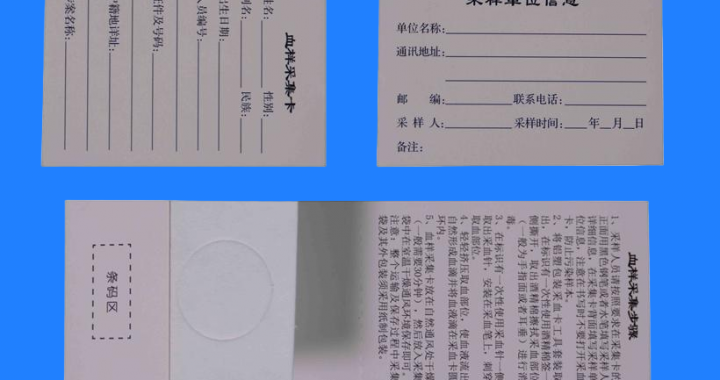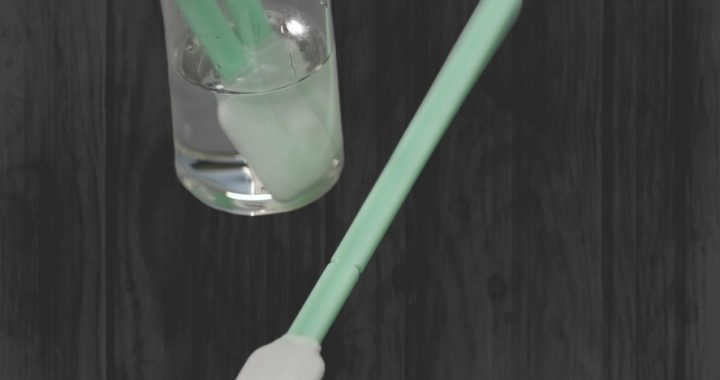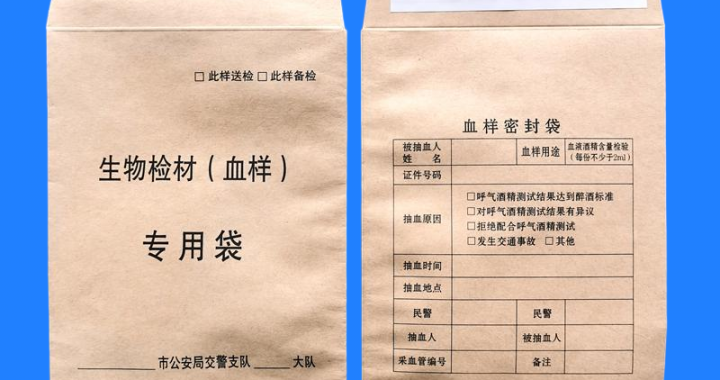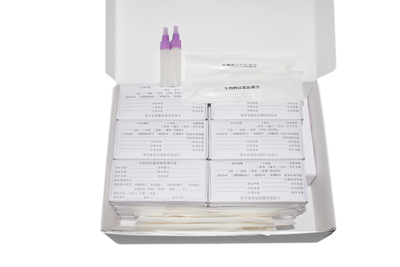Enhanced double-hole blood sample collection card kits are designed to simplify the process of collecting and preserving blood samples for DNA analysis. These kits feature two absorbent holes for blood collection, offering improved sample absorption and uniform distribution, which ensures better DNA extraction.
Usage Methods:
-
Collection: Place the card on a flat surface. Use a sterile lancet or needle to collect blood and apply it to the holes on the card. Gently allow the blood to absorb.
-
Drying: After collection, let the card dry in a clean, dust-free environment for at least 30 minutes.
-
Storage: Once dry, store the card in a sealed, labeled pouch. It can be stored at room temperature, eliminating the need for refrigeration.
Precautions:
-
Ensure the card is handled with clean, sterile equipment to avoid contamination.
-
Only apply fresh blood to the card; avoid using blood from coagulated samples.
-
Ensure the card is completely dry before sealing to prevent moisture-related DNA degradation.
-
Label the card immediately after collection for easy identification.
Key Features:
-
Two absorbent holes for efficient sample collection
-
Simple and easy blood collection process
-
Long-term DNA preservation without refrigeration
-
Suitable for a wide range of genetic testing applications
Scope:
These cards are ideal for forensic investigations, paternity tests, epidemiological research, and public health screenings, especially in remote or resource-limited settings.





-双管生物样本采集套装-400x380.png)

.png)
-720x380.png)